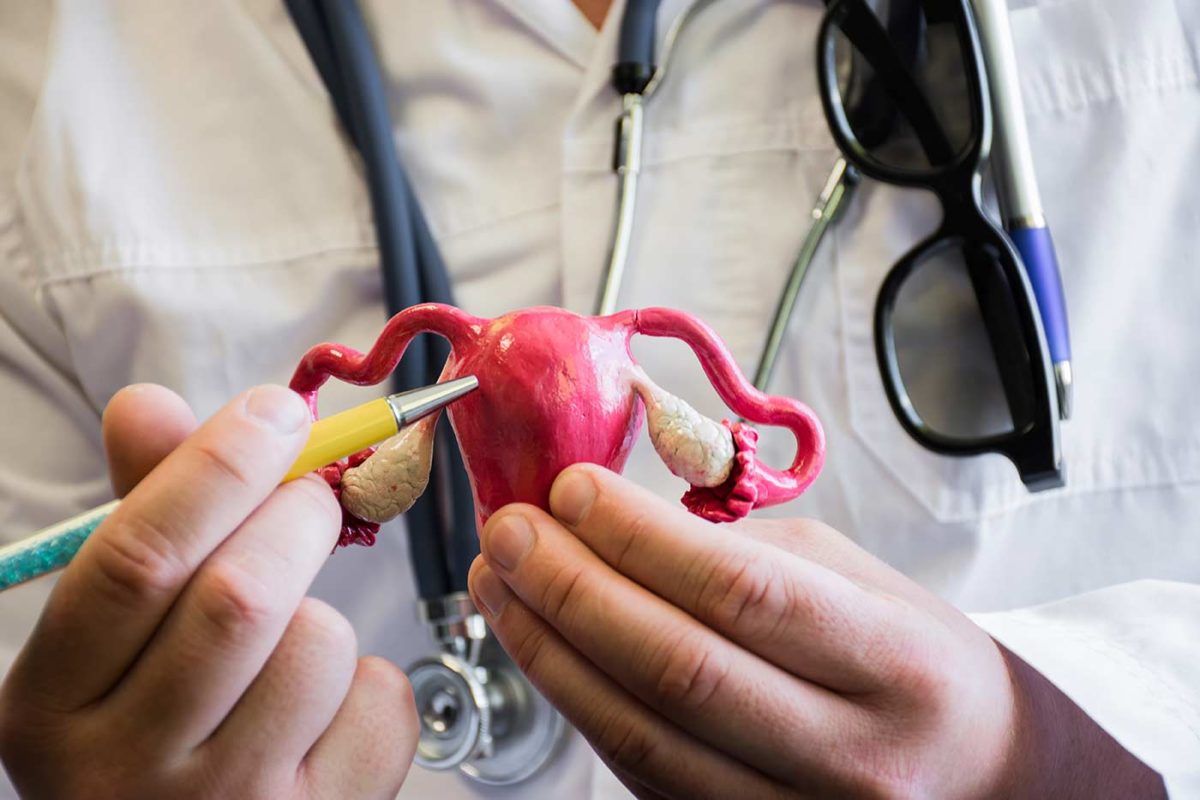World Ovarian Cancer Day: Understanding Ovarian Cancer Risk Factors
World Ovarian Cancer Day is May 8th, 2022. Around the globe, health care professionals, women’s advocates, and cancer organizations spotlight this disease that results in the death of hundreds of thousands of women annually.
Here at Rock The Treatment, we want to do more than curate gift baskets for people receiving treatment for ovarian cancer. This World Ovarian Cancer Day, we want to help educate women and their families about the risk factors associated with ovarian cancer.
Why Do Women Need To Know About Ovarian Risk Factors?
Understanding ovarian cancer risk factors should be important to all women. Why?
Because there is no routine test to screen for ovarian cancer – it can’t be detected by an ordinary physical exam or pap test.
Ovarian cancer can only be definitively diagnosed with a biopsy. Unfortunately, many ovarian cancer signs and symptoms are also attributable to other, less severe conditions. Because of this, many women and doctors don’t even consider testing for ovarian cancer until the disease is in its later stage and more difficult to treat successfully.
Knowing the risk factors for ovarian cancer can help you advocate for appropriate diagnostic testing.
If you have one or more of the risk factors and have signs or symptoms that can be associated with ovarian cancer, make sure to share this information with your doctor. The earlier you detect ovarian cancer, the higher the survival rate.
What Are The Risk Factors Related To Ovarian Cancer?
According to the American Cancer Society, a “risk factor is anything that increases your chances of getting a disease like cancer.” Having a risk factor doesn’t mean you will definitely get the disease, and you can still get the disease if you have no risk factors. There is no one-size-fits-all formula for understanding who will develop a particular type of cancer and why.
Research shows several risk factors can increase a woman’s chance of developing the most common type of ovarian cancer called epithelial ovarian cancer. These do not apply to less common types of ovarian cancer such as stromal or germ cell tumors.
The risk factors for ovarian cancer include:
Age – The risk of ovarian cancer increases with age. Most ovarian cancer is diagnosed in post-menopausal women. More than 50% of ovarian cancer is diagnosed in women over 62.
Weight – Obesity is linked to an increased risk of many cancers. Research indicates that women who are obese might have a higher risk of developing and surviving ovarian cancer.
Childbirth – Women who have never carried a pregnancy to term or had their first full-term pregnancy after age 35 have a greater risk of getting ovarian cancer.
Family History – If your mother, sister, or daughter had or has ovarian cancer, the risk is higher that you will get ovarian cancer. The more relatives, the higher the risk. Ovarian cancer can run in families and can come from either side.
If you have a family history of colon cancer or breast cancer, this can also increase the risk of ovarian cancer.
Family Cancer Syndrome – About one-quarter of ovarian cancers are caused by family cancer syndrome (inherited genetic mutations.)
Breast Cancer – If you had or have breast cancer, you may have an increased risk of developing ovarian cancer.
Hormone Therapy – Women who take hormones after menopause have a greater risk of developing ovarian cancer than women who don’t take hormones.
Fertility Treatment/IVF – Fertility drugs may affect your risk of ovarian cancer.
Smoking – Smoking is related to an increased risk of one particular type of ovarian cancer (mucinous).
Can You Lower Your Risk Factors For Ovarian Cancer?
Research shows that eating a balanced diet, maintaining a healthy weight, exercising, and avoiding tobacco and alcohol products can lower your risk of many cancers. When it comes to ovarian cancer specifically, research indicates that there are two factors that can reduce your risk:
Birth Control – Women who have taken oral birth control pills have a reduced risk of ovarian cancer.
The longer you take them, the lower the risk. IUDs and tubal ligation have also been associated with a reduced risk of ovarian cancer. Having a hysterectomy but leaving the ovaries might also reduce your risk.
Childbirth and Breastfeeding – Women who have had a full-term pregnancy before the age of 26 have a lower risk of ovarian cancer than women who did not. The risk of ovarian cancer seems to decrease with every full-term pregnancy. Breastfeeding may also lower the risk.
The More You Know About Ovarian Cancer, The Better!
You are your best advocate when it comes to your body and your health.
World Ovarian Cancer Day is a perfect time to learn more about this disease that might affect you and the women you love. Understanding ovarian cancer risk factors can be crucial to ensure you receive a prompt and accurate diagnosis.
Find out what risk factors apply to you. Know the signs of ovarian cancer. Learn about the symptoms.
Visit Cancer.org for additional information.
Send Helpful Cancer Care Packages
At Rock the Treatment, we make it easy to let someone with cancer know you care and support them on their difficult journey. If someone you love has ovarian cancer or any other type of cancer, send a helpful cancer gift basket from Rock The Treatment. Chemotherapy and radiation gift baskets are packed with the essentials needed to ease side effects of treatment, as well as enhance physical and mental well-being. See all of our cancer care packages and find the one that best supports their journey.

